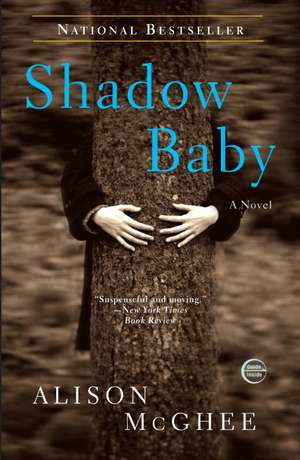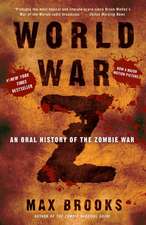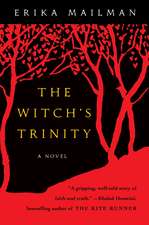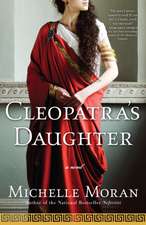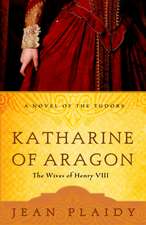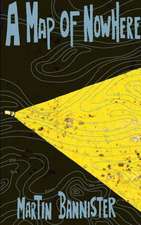Shadow Baby
Autor Alison McGheeen Limba Engleză Paperback – 31 aug 2009
In Alison McGhee's stunning novel Shadow Baby, eleven-year-old Clara is struggling to find the truth about her missing father and grandfather and her twin sister, dead at birth, but her mother steadfastly refuses to talk about these people who are lost to her daughter. When Clara begins interviewing Georg Kominsky for a school biography assignment, she finds that he is equally reticent about his own concealed history. Precocious and imaginative, the girl invents version upon version of Mr. Kominsky's past, just as she invents lives for the people missing from her own shadowy past.
The journey of discovery that these two oddly matched people embark upon is at the heart of this beautiful story about friendship and communion, about discovering what matters most in life, and about the search to find the missing pieces of ourselves. McGhee's prose glistens with shrewd truth and wild imaginings, creating a fine novel that will reverberate in the hearts and minds of readers long after the book is finished.
From the Hardcover edition.
Preț: 100.16 lei
Nou
Puncte Express: 150
Preț estimativ în valută:
19.17€ • 19.94$ • 15.82£
19.17€ • 19.94$ • 15.82£
Carte disponibilă
Livrare economică 22 martie-05 aprilie
Preluare comenzi: 021 569.72.76
Specificații
ISBN-13: 9780307462282
ISBN-10: 0307462285
Pagini: 247
Dimensiuni: 135 x 203 x 14 mm
Greutate: 0.2 kg
Editura: Three Rivers Press (CA)
ISBN-10: 0307462285
Pagini: 247
Dimensiuni: 135 x 203 x 14 mm
Greutate: 0.2 kg
Editura: Three Rivers Press (CA)
Notă biografică
ALISON McGHEE has been awarded the Minnesota Book Award and the Great Lakes College Association New Writers Award for her first novel, Rainlight. This is her second novel. Her short fiction has been published widely in literary magazines. Born and reared in the Adirondack Mountains of upstate New York, she currently lives in Minnesota.
From the Hardcover edition.
From the Hardcover edition.
Extras
Now that the old man is gone, I think about him much of the time. I remember the first night I ever saw him. It was March, a year and a half ago. I was watching skiers pole through Nine Mile Woods on the Adirondack Ski Trail, black shapes moving through the trees like shadows or bats flying low. I watched from the churchhouse as my mother, Tamar, and the rest of the choir practiced in the Twin Churches sanctuary.
That was my habit back then. I was an observer and a watcher.
When the choir director lifted her arm for the first bar of the first hymn, I left and walked through the passageway that leads from the sanctuary to the churchhouse. The light that comes through stained-glass windows when the moon rises is a dark light. It makes the colors of stained glass bleed into each other in the shadows. A long time ago one of the Miller boys shot his BB gun through a corner of the stained-glass window in the back, near the kitchen. No one ever fixed it. The custodian cut a tiny piece of clear glass and puttied it into the broken place. I may be the only person in the town of Sterns, New York, who still remembers that there is one stained-glass window in a corner of the Twin Churches churchhouse that is missing a tiny piece of its original whole.
It's gone. It will never return.
That first night, the first time I ever saw the old man, I dragged a folding chair over to that window and stood on it so I could look through the tiny clear piece of patch-glass onto the sloping banks of the Nine Mile Woods. Down below you can see Nine Mile Creek, black and glittery. You would never want to fall into it even though it's only a few feet deep.
I watched the old man in the woods that night. He held fire in his bare hands. That's what it looked like at first, before I realized it was an extralong fireplace match. Tamar and I do not have a fireplace but still, I know what an extralong fireplace match looks like. I watched the old man for what seemed like two hours, as long as the choir took to practice. The moonlight turned him into a shadow amongst the trees, until a small flame lit up a few feet from the ground. The small flame rose in the air and swung from side to side, swinging slower and slower until it stopped. Then I saw that it was a lantern, hung in a tree. An old-time kind of lantern, with candlelight flickering through pierced-tin patterns. I knew about that kind of lantern. It was a pioneer lantern.
You might wonder how I knew about lanterns. You might wonder how a mere girl of eleven would have in-depth knowledge of pierced-tin pioneer lanterns.
Let me tell you that a girl of eleven is capable of far more than is dreamt of in most universes.
To the casual passerby a girl like me is just a girl. But a girl of eleven is more than the sum of her age. Although it is not often stated, she is already living in her twelfth year; she has entered into the future.
The first night I saw him the old man was lighting up the woods for the skiers. First one lantern hung swinging in the tree, then another flame hung a few trees farther down. I stood on my folding chair and peeked through the clear patch-glass on the stained-glass window. Three lanterns lit, and four. Six, seven, eight. Nine, and the old man was done. I watched his shadow move back to the toboggan he had used to drag the lanterns into Nine Mile Woods. He picked up the toboggan rope, he put something under his arm, and he walked through the woods to Nine Mile Trailer Park, pulling the toboggan behind him. The dark shapes of skiers flitted past. The old man kept walking.
I watched from my folding chair inside the churchhouse. In the light from the lanterns I could see each skier saluting the old man as he walked out of the woods. A pole high in the air, then they were gliding on past.
He never waved back.
I pressed my nose against the clear patch of glass and then the folding chair collapsed under me and I crashed to the floor. My elbow hurt so much that despite myself I cried. I dragged over another chair and climbed up again. But by then the old man was gone.
The old man lived in Sterns and I live in North Sterns. A lot of us in North Sterns live in the woods. You could call a girl like me a woods girl. That could be a name for someone like me, who lives in the woods but who could not be considered a pioneer. Pioneer children lived in days gone by.
I started at Sterns Elementary, I am now in Sterns Middle, and in three years I will be at Sterns High. So has, and does, and will everyone else in my class. CJ Wilson, for example. CJ Wilson's bullet-shaped head, his scabbed fingers, the words that come leaking from his mouth, I have known all my life. Were it not for CJ Wilson, and the boys who surround him, I might have been a different kind of person in school. I might have been quicker to talk, faster to raise my hand. I might have been picked first for field hockey. I might have walked down the middle of the hallway instead of close to the lockers. I might have been known as a chattery girl. I might have had a nickname.
Who's to say? Who's to know?
Jackie Phillips wet her pants in kindergarten. We were in gym class. Jumping jacks. I looked to my right, where Jackie Phillips was jumping kitty-corner from me, and saw a puddle below her on the polished gym floor. A dark stain on her blue shorts.
Six years later, what do the students of Sterns Middle School think of when they think about Jackie Phillips? Do they think, Captain of Mathletics, Vice-President of
4-H, science lab partner of Bernie missing-his-right-thumb Hauser, Jackie Phillips whose hair turns green in summer from the chlorine at Camroden Pool, Jackie Phillips who's allergic to strawberries?
They might. But they will also think: Jackie Phillips wet her pants in kindergarten while everyone was doing jumping jacks. That's the way it is.
Does everyone look at me and think, Clara Winter who loathes and despises snow and cold, who lives with her mother The Fearsome Tamar in North Sterns, whose eyes can look green or gray or blue, depending, who has never met her father or her grandfather, who has represented Sterns Elementary at every state spelling bee since first grade, whose hair could be called auburn, who loves books about days gone by? Clara Winter who saw that Jackie had wet her pants in gym class and so stopped jumping jacks and ran out of line and tried but failed to wipe up the spill surreptitiously with a used tissue before anyone else would notice? Is that what they think?
They do, and they do not.
From the Hardcover edition.
That was my habit back then. I was an observer and a watcher.
When the choir director lifted her arm for the first bar of the first hymn, I left and walked through the passageway that leads from the sanctuary to the churchhouse. The light that comes through stained-glass windows when the moon rises is a dark light. It makes the colors of stained glass bleed into each other in the shadows. A long time ago one of the Miller boys shot his BB gun through a corner of the stained-glass window in the back, near the kitchen. No one ever fixed it. The custodian cut a tiny piece of clear glass and puttied it into the broken place. I may be the only person in the town of Sterns, New York, who still remembers that there is one stained-glass window in a corner of the Twin Churches churchhouse that is missing a tiny piece of its original whole.
It's gone. It will never return.
That first night, the first time I ever saw the old man, I dragged a folding chair over to that window and stood on it so I could look through the tiny clear piece of patch-glass onto the sloping banks of the Nine Mile Woods. Down below you can see Nine Mile Creek, black and glittery. You would never want to fall into it even though it's only a few feet deep.
I watched the old man in the woods that night. He held fire in his bare hands. That's what it looked like at first, before I realized it was an extralong fireplace match. Tamar and I do not have a fireplace but still, I know what an extralong fireplace match looks like. I watched the old man for what seemed like two hours, as long as the choir took to practice. The moonlight turned him into a shadow amongst the trees, until a small flame lit up a few feet from the ground. The small flame rose in the air and swung from side to side, swinging slower and slower until it stopped. Then I saw that it was a lantern, hung in a tree. An old-time kind of lantern, with candlelight flickering through pierced-tin patterns. I knew about that kind of lantern. It was a pioneer lantern.
You might wonder how I knew about lanterns. You might wonder how a mere girl of eleven would have in-depth knowledge of pierced-tin pioneer lanterns.
Let me tell you that a girl of eleven is capable of far more than is dreamt of in most universes.
To the casual passerby a girl like me is just a girl. But a girl of eleven is more than the sum of her age. Although it is not often stated, she is already living in her twelfth year; she has entered into the future.
The first night I saw him the old man was lighting up the woods for the skiers. First one lantern hung swinging in the tree, then another flame hung a few trees farther down. I stood on my folding chair and peeked through the clear patch-glass on the stained-glass window. Three lanterns lit, and four. Six, seven, eight. Nine, and the old man was done. I watched his shadow move back to the toboggan he had used to drag the lanterns into Nine Mile Woods. He picked up the toboggan rope, he put something under his arm, and he walked through the woods to Nine Mile Trailer Park, pulling the toboggan behind him. The dark shapes of skiers flitted past. The old man kept walking.
I watched from my folding chair inside the churchhouse. In the light from the lanterns I could see each skier saluting the old man as he walked out of the woods. A pole high in the air, then they were gliding on past.
He never waved back.
I pressed my nose against the clear patch of glass and then the folding chair collapsed under me and I crashed to the floor. My elbow hurt so much that despite myself I cried. I dragged over another chair and climbed up again. But by then the old man was gone.
The old man lived in Sterns and I live in North Sterns. A lot of us in North Sterns live in the woods. You could call a girl like me a woods girl. That could be a name for someone like me, who lives in the woods but who could not be considered a pioneer. Pioneer children lived in days gone by.
I started at Sterns Elementary, I am now in Sterns Middle, and in three years I will be at Sterns High. So has, and does, and will everyone else in my class. CJ Wilson, for example. CJ Wilson's bullet-shaped head, his scabbed fingers, the words that come leaking from his mouth, I have known all my life. Were it not for CJ Wilson, and the boys who surround him, I might have been a different kind of person in school. I might have been quicker to talk, faster to raise my hand. I might have been picked first for field hockey. I might have walked down the middle of the hallway instead of close to the lockers. I might have been known as a chattery girl. I might have had a nickname.
Who's to say? Who's to know?
Jackie Phillips wet her pants in kindergarten. We were in gym class. Jumping jacks. I looked to my right, where Jackie Phillips was jumping kitty-corner from me, and saw a puddle below her on the polished gym floor. A dark stain on her blue shorts.
Six years later, what do the students of Sterns Middle School think of when they think about Jackie Phillips? Do they think, Captain of Mathletics, Vice-President of
4-H, science lab partner of Bernie missing-his-right-thumb Hauser, Jackie Phillips whose hair turns green in summer from the chlorine at Camroden Pool, Jackie Phillips who's allergic to strawberries?
They might. But they will also think: Jackie Phillips wet her pants in kindergarten while everyone was doing jumping jacks. That's the way it is.
Does everyone look at me and think, Clara Winter who loathes and despises snow and cold, who lives with her mother The Fearsome Tamar in North Sterns, whose eyes can look green or gray or blue, depending, who has never met her father or her grandfather, who has represented Sterns Elementary at every state spelling bee since first grade, whose hair could be called auburn, who loves books about days gone by? Clara Winter who saw that Jackie had wet her pants in gym class and so stopped jumping jacks and ran out of line and tried but failed to wipe up the spill surreptitiously with a used tissue before anyone else would notice? Is that what they think?
They do, and they do not.
From the Hardcover edition.
Recenzii
“Suspenseful and moving."
—New York Times
"This is one of those novels in which the quality of the writing lulls a reader . . . the way beauty does in real life."
—Los Angeles Times Book Review
“Perfectly constructed and beautifully written.”
—The Dallas News
"A feisty little heroine who often seems equal parts Huck Finn, Eloise, and . . . well, maybe Shakespeare's Beatrice-to-be. . . At once witty, tender, funny, touching, and, by the end, tragic in a way that perfectly brings all to a close, if never to an end. Bound for success, or else the world has gone mad." - Kirkus Reviews (starred)
“Loss, guilt and regret are conquered and transformed in McGhee's graceful second novel (after Rainlight), a poignant tale of family history regained…With a mix of deadpan humor and pathos, McGhee perfectly captures the voice of a sensitive, wise child on the cusp of adulthood, at once knowing and naïve.” – Publishers Weekly
"At last, a heroine to root for! In this charming novel, Alison McGhee has opened a new window on childhood."
-- Hilma Wolitzer
"Bright, funny, and almost spookily imaginative, Clara, by her own admission, is a student of the laws of nature, an expert in the ways of hermits and pioneers, an 'apprentice' to life. That she is also eleven years old is probably the least important fact about her; she's an old soul. With a mother who doesn't talk and a father who never existed, she manages to fashion a version of her own history that she can live with, at the same time that she chronicles a life for her best friend, Georg Kominsky, a retired metalworker who lives in Nine Mile Trailer Park. Clara, the yarn-spinner, lover of words and of happy endings, takes on the secrets of her past with wit and ferocity. Alison McGhee, with her seductive, almost hypnotic prose, has created a heroine that one simply must love."
--Judith Guest
"McGhee writes about childhood and old age with equal skill and grace. Poignant and bittersweet, her novel has life on every page."
--William Gay
From the Hardcover edition.
—New York Times
"This is one of those novels in which the quality of the writing lulls a reader . . . the way beauty does in real life."
—Los Angeles Times Book Review
“Perfectly constructed and beautifully written.”
—The Dallas News
"A feisty little heroine who often seems equal parts Huck Finn, Eloise, and . . . well, maybe Shakespeare's Beatrice-to-be. . . At once witty, tender, funny, touching, and, by the end, tragic in a way that perfectly brings all to a close, if never to an end. Bound for success, or else the world has gone mad." - Kirkus Reviews (starred)
“Loss, guilt and regret are conquered and transformed in McGhee's graceful second novel (after Rainlight), a poignant tale of family history regained…With a mix of deadpan humor and pathos, McGhee perfectly captures the voice of a sensitive, wise child on the cusp of adulthood, at once knowing and naïve.” – Publishers Weekly
"At last, a heroine to root for! In this charming novel, Alison McGhee has opened a new window on childhood."
-- Hilma Wolitzer
"Bright, funny, and almost spookily imaginative, Clara, by her own admission, is a student of the laws of nature, an expert in the ways of hermits and pioneers, an 'apprentice' to life. That she is also eleven years old is probably the least important fact about her; she's an old soul. With a mother who doesn't talk and a father who never existed, she manages to fashion a version of her own history that she can live with, at the same time that she chronicles a life for her best friend, Georg Kominsky, a retired metalworker who lives in Nine Mile Trailer Park. Clara, the yarn-spinner, lover of words and of happy endings, takes on the secrets of her past with wit and ferocity. Alison McGhee, with her seductive, almost hypnotic prose, has created a heroine that one simply must love."
--Judith Guest
"McGhee writes about childhood and old age with equal skill and grace. Poignant and bittersweet, her novel has life on every page."
--William Gay
From the Hardcover edition.
Descriere
Eleven-year-old Clara struggles to find the truth about her missing father, her grandfather, and her dead twin sister. When she begins interviewing an elderly neighbor, she invents versions of the man's past, and makes up lives for the people missing from her own shadowy history.
